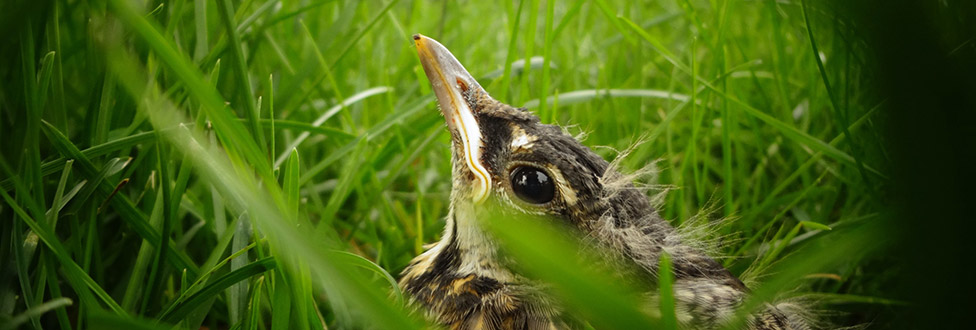I Found A Baby Bird. What Do I Do Now?
ARL provides tips on when and how to rescue a baby bird on the ground
Spring has sprung. The sun is shining. Flowers are blooming. And baby birds are learning to fly.
This time of year, the Animal Rescue League of Boston (ARL) receives phone calls from concerned citizens who come across baby birds on the ground. Although this sight may seem alarming, remember that part of the process of learning to fly comes with being on the ground. It’s typically best to keep a safe distance and not to intervene unless you’re sure the bird is orphaned or is in immediate danger.
To decide whether or not to step in the next time you spot a baby bird on the ground, follow this helpful flow chart:
If the flow chart points you toward intervention, follow these 11 steps to ensure a safe rescue*†:
-
-
- Grab clean container with a lid and line the bottom with a soft cloth. Poke air holes if there are none.
- Wear gloves to protect yourself from the bird’s beak, talons, wings, and any potential parasites.
- Cover the bird with a light sheet or towel.
- Gently pick up the bird and place it in the prepared container.
- Warm the bird if it’s chilled by placing one end of the container on top of a heating pad (low setting) or in a shallow dish of warm water. You can also wrap the container with the warm cloth.
- Tape the container closed.
- Note exactly where you found the bird. This will be very important for release.
- Keep the bird in a warm dark quiet place away from children and animals. Do not give it food or water.
- Wash your hands and any clothing and objects that were in contact with the bird to avoid spreading any potential parasites.
- Contact a wildlife rehabilitator, state wildlife agency, or wildlife veterinarian.
- Get the bird to the wildlife expert as soon as possible. It is against the law in most states to keep wild animals in your home if you do not have a permit, even if you plan to release them.
-
Find a list of wildlife rehabilitators here.
*Only adults should rescue baby birds. Before rescuing an adult bird, seek guidance from a wildlife expert.
†Source: Healers of the Wild: People Who Care For Injured and Orphaned Wildlife, By Shannon K. Jacobs


